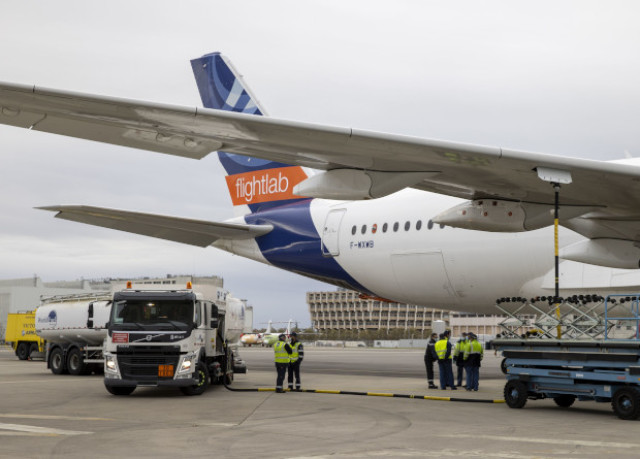The European aircraft manufacturer Airbus, together with the German Aerospace Center (DLR), the British company Rolls-Royce and the Finnish fuel company, launched a project to study the impact of biofuels on the fuel systems and engines of passenger aircraft. According to Airbus, as part of the project, participants will also assess the amount of emissions from aircraft engines running on biofuels.
Airlines and developers of aviation equipment are forced to look for ways to reduce the amount of emissions of harmful substances. In particular, air carriers that have accepted the recommendations of the International Civil Aviation Organization should maintain the level of carbon dioxide emissions no higher than the level of 2020. In addition, airlines need to reduce their emissions by 50 percent by 2050 compared to 2005 levels.
Some developers believe that thanks to the transition of aviation to biofuels, it will be possible to significantly reduce the amount of carbon dioxide emissions, one of the main factors of global climate change. At the same time, the transition to biofuels will not require significant investments in the development of new fuel systems, engines or aircraft, as is often the case with the creation of hybrid and electric aircraft.
The research project, initiated by Airbus, will be carried out in several stages. At the first stage, specialists will conduct ground tests of the fuel system and engines of the Trent XWB passenger liner A350-900 on 100% biofuel. Then the aircraft will perform the first flight on this type of fuel, produced from hydrotreated alcohols and fatty acids.
After a series of flight tests on biofuels, the project participants will assess the emissions of the A350-900 engines running on biofuels and compare them with the emissions of standard hydrocarbon aviation fuel and aviation kerosene with a reduced content of sulfur compounds. The estimate of emissions will be made using equipment on board the Falcon 20-E aircraft, which will fly in the wake of the A350-900.
The European Project is not the first such study. In 2013-2014, NASA, together with experts from Germany and Canada , conducted a study of the environmental friendliness of aviation biofuels and concluded that its use on aircraft can reduce harmful emissions by 50-70 percent. The results of the analyses were published in 2017.
In its study, NASA used a modified DC-8 airliner. This aircraft flew at an altitude of 12.2 thousand meters. It was fueled with a mixture of conventional aviation fuel and biofuels made from hydrotreated alcohols and fatty acids. Each type of fuel in the mixture was equal. In flight, the DC-8 was accompanied by three research aircraft. They measured DC-8 emissions.
Vasily Sychev

